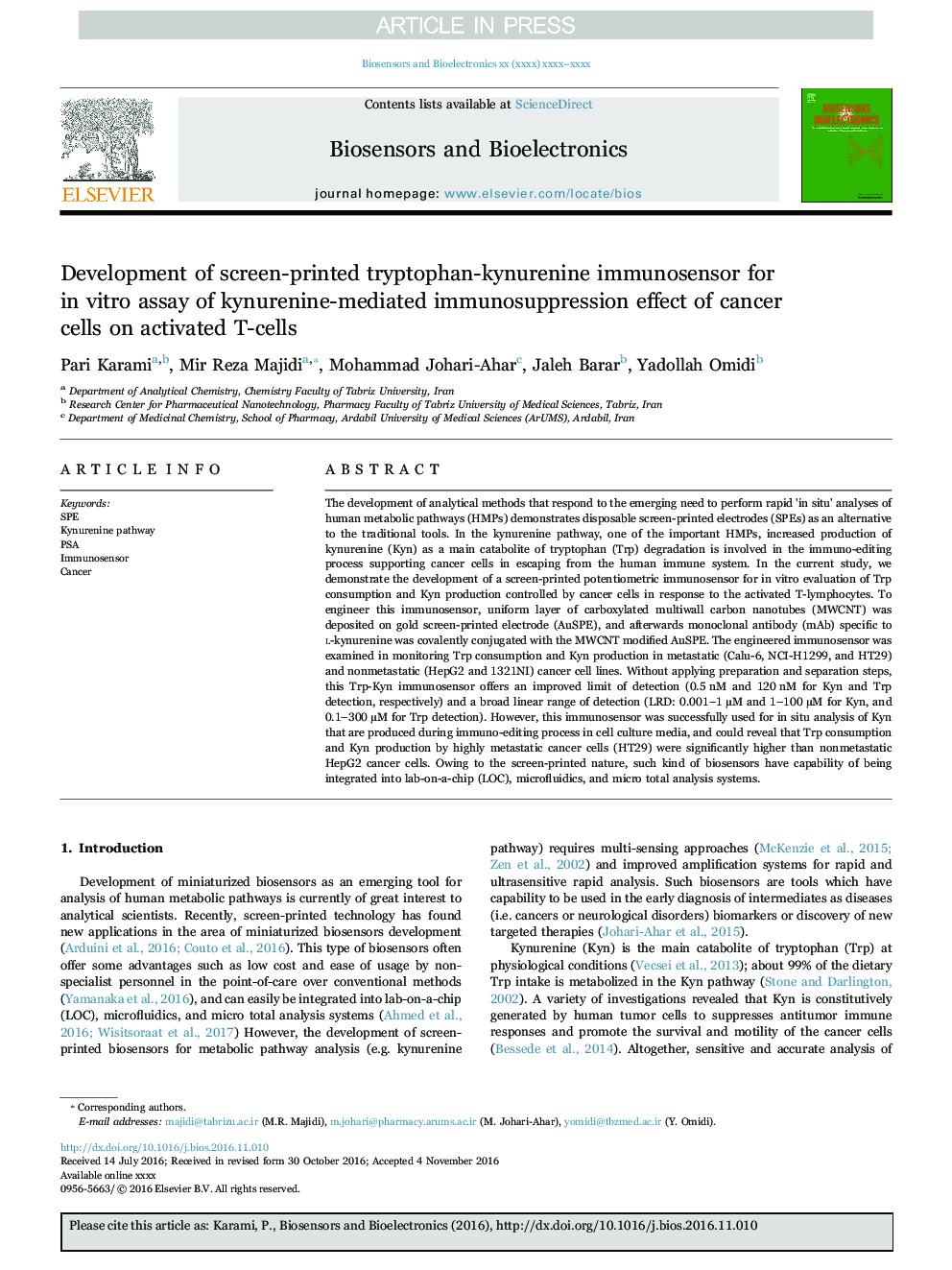| Article ID | Journal | Published Year | Pages | File Type |
|---|---|---|---|---|
| 5031606 | Biosensors and Bioelectronics | 2017 | 7 Pages |
Abstract
The development of analytical methods that respond to the emerging need to perform rapid 'in situ' analyses of human metabolic pathways (HMPs) demonstrates disposable screen-printed electrodes (SPEs) as an alternative to the traditional tools. In the kynurenine pathway, one of the important HMPs, increased production of kynurenine (Kyn) as a main catabolite of tryptophan (Trp) degradation is involved in the immuno-editing process supporting cancer cells in escaping from the human immune system. In the current study, we demonstrate the development of a screen-printed potentiometric immunosensor for in vitro evaluation of Trp consumption and Kyn production controlled by cancer cells in response to the activated T-lymphocytes. To engineer this immunosensor, uniform layer of carboxylated multiwall carbon nanotubes (MWCNT) was deposited on gold screen-printed electrode (AuSPE), and afterwards monoclonal antibody (mAb) specific to l-kynurenine was covalently conjugated with the MWCNT modified AuSPE. The engineered immunosensor was examined in monitoring Trp consumption and Kyn production in metastatic (Calu-6, NCI-H1299, and HT29) and nonmetastatic (HepG2 and 1321NI) cancer cell lines. Without applying preparation and separation steps, this Trp-Kyn immunosensor offers an improved limit of detection (0.5 nM and 120 nM for Kyn and Trp detection, respectively) and a broad linear range of detection (LRD: 0.001-1 µM and 1-100 µM for Kyn, and 0.1-300 µM for Trp detection). However, this immunosensor was successfully used for in situ analysis of Kyn that are produced during immuno-editing process in cell culture media, and could reveal that Trp consumption and Kyn production by highly metastatic cancer cells (HT29) were significantly higher than nonmetastatic HepG2 cancer cells. Owing to the screen-printed nature, such kind of biosensors have capability of being integrated into lab-on-a-chip (LOC), microfluidics, and micro total analysis systems.
Related Topics
Physical Sciences and Engineering
Chemistry
Analytical Chemistry
Authors
Pari Karami, Mir Reza Majidi, Mohammad Johari-Ahar, Jaleh Barar, Yadollah Omidi,
